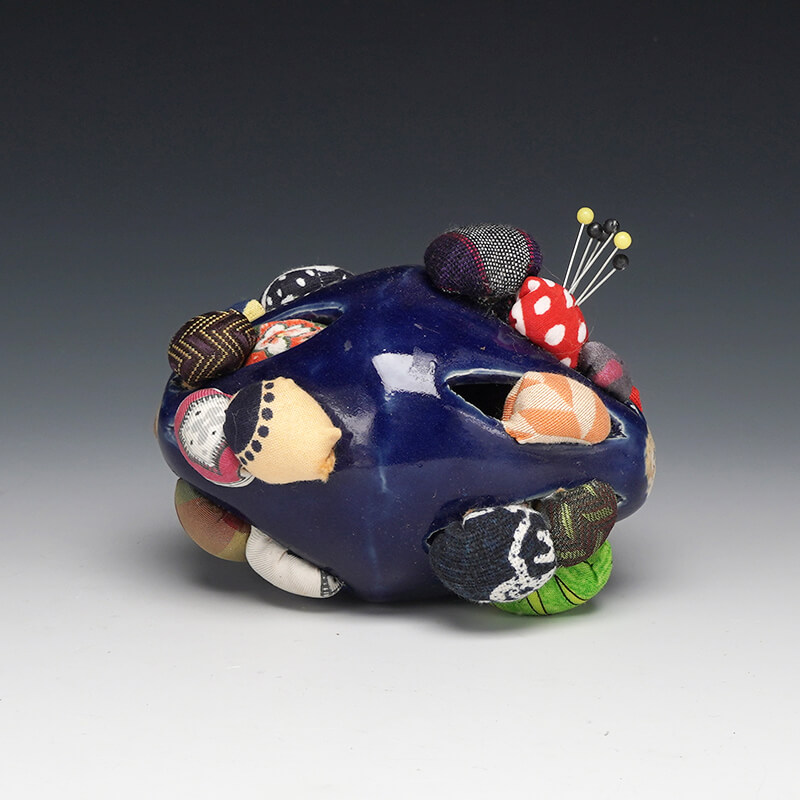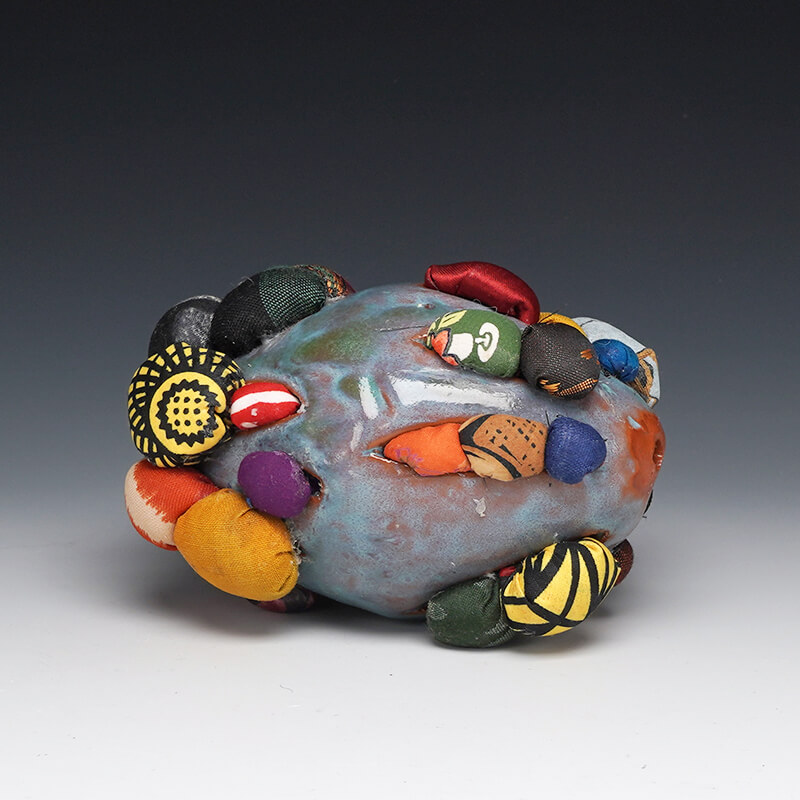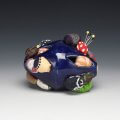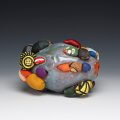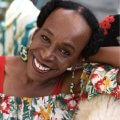
Sana Musasama received her BA from City College of New York in 1973 and her MFA from Alfred University, New York in 1988. She was awarded the 2022 Life Honorary Membership Award and the 2018 Outstanding Achievement Award from the National Council on Education for the Ceramic Arts (NCECA) for her years of teaching and her humanitarian work with victims of sex trafficking in Cambodia and the United States. Sana is the coordinator of the Apron Project, a sustainable entrepreneurial project for girls and young women reintegrated back into society after being forced into sex trafficking. In 2016, she was a guest speaker on “Activism through Art” at ROCA. An article by Cliff Hocker, “If I can Help Somebody: Sana Musasama’s Art of Healing” appears in the International Review of African American Art.
In 2015, the Museum of Art and Design in New York selected four works from The Unspeakable Series for their private collection; Sana was awarded the ACLU of Michigan Art Prize 7 and Art Prize 8. In 2002, she was awarded Anonymous Was a Woman and in 2001, she was featured in the 2001 Florence Biennial. Her work is in multiple collections such as The Mint Museum in Charlotte, North Carolina; The Museum of Art and Design in New York, New York; the Cooper Hewitt Smithsonian Design Museum in New York, New York; the Hood Museum of Art in Hanover, New Hampshire; The Studio Museum in Harlem, New York; Schomburg Center for Research in Black Culture in Harlem, New York; Bluffton University in Bluffton, Ohio; and in numerous private collections. Sana lives and works in New York.
Pandemic Survival Mode Series
I produced these small works during the height of the pandemic. Pinching clay brought me comfort; I felt like I was lost or trapped in a reoccurring horror movie. The pinch form is the first technique I learned, over 50 years ago. It is normally the first technique I teach. It is probably the first form humans shaped out of clay to make vessels that contained life vitals, water, and food. No wonder they brought me comfort during that time. The fabric was waste from the Apron Project, a self-sustaining outreach project I founded in Cambodia over 14 years old, for girls once trapped in the sex industry. I was unable to travel to them last year and I missed them terribly. It would have been my 14th year of service. I worried deeply for them, their health, their safety. Placing the fabric from aprons into the excised openings in the forms was me replacing loss with hope, love, celebration, and our futures on the planet.

